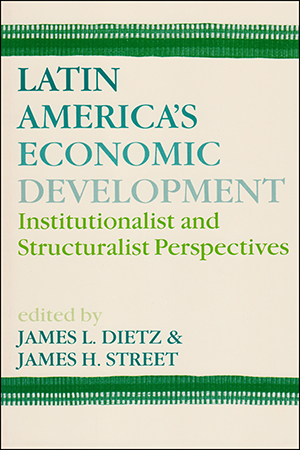
- 1995/402 pages
Latin America's Economic Development:
Confronting Crisis, 2nd Edition
The book addresses fundamental areas of concern: the relationship between economic growth and equity; import substitution vs. export-oriented strategies; the role of transnational corporations; new objectives for both market and state; employment and unemployment; inflation; debt; and the impact of neoliberal adjustment policies. Chapters new to the second edition touch particularly on persistent inflation, populist economic policies, women in the work force, poverty, structural adjustment, and the neostructuralist alternative to neo- liberalism.
The section introductions identify key issues in the readings and, where appropriate, suggest approaches to the problems explored.
This is the perfect book for use as a core text in combination with other collections, or as a complement to a text such as Cardoso and Helwege's Latin America's Economy.







